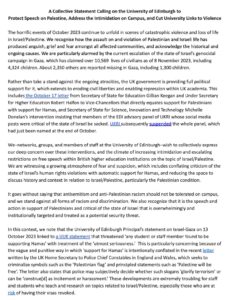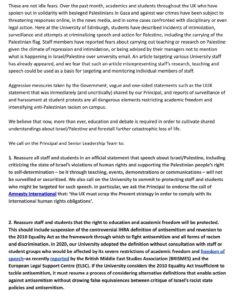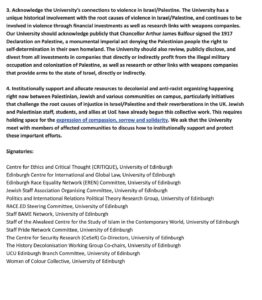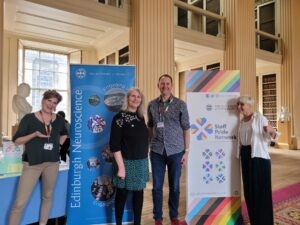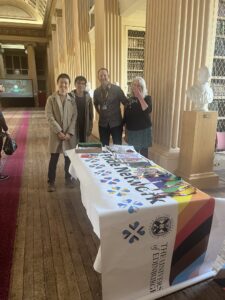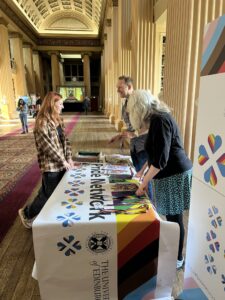Pride Events 2024
Here we will try to list all the events happening for Pride in and around the University (please check back for updates):
May
- Staff Pride Network BioQuarter Coffee & Cake Social
- Date: 28th May 2024
- Time: 12:30 BST
- Details: Coffee and cake social event at BioQuarter organized by the Staff Pride Network.
- Link: Staff Pride Network BioQuarter Coffee & Cake Social
- Staff Pride Network Central Coffee & Cake
- Date: 29th May 2024
- Time: 13:00 BST
- Details: Coffee and cake social event organized by the Staff Pride Network.
- Link: Staff Pride Network Central Coffee & Cake
June
- Poetry Workshop
- Date: 5th June 2024
- Time: 10am – 12pm BST
- Location: IRR South Auditorium
- Details: Open to all members of the UoE LGBT+ community, staff and students, from any College.
- Link: LGBT+ Identity in the Workplace: A Poetry Workshop
- Staff Pride Network Evening Social
- Date: 7th June 2024
- Time: 17:30 BST
- Details: An evening social event organized by the Staff Pride Network.
- Link: Staff Pride Network Evening Social
- Little France Pride March and Information Fair
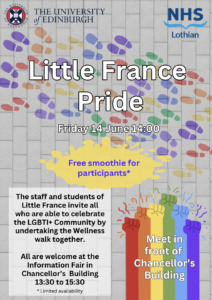
- Poster: Little France Pride
- Date: 14th June 2024
- Time: March at 14:00, Information Fair from 13:30 to 15:30
- Details:
- Wellness Walk: Undertaken by the staff and students of Little France to celebrate the LGBTI+ community.
- Information Fair: Held in the Chancellor’s Building.
- Free Smoothie: Available for participants (limited availability).
- Meeting Point: In front of Chancellor’s Building.
- Staff Pride Network Holyrood Coffee & Cake
- Date: 18th June 2024
- Time: 13:00 – 14:00 BST
- Details: Coffee and cake social event at Holyrood organized by the Staff Pride Network. This event will run every third Tuesday of the month.
- Link: Staff Pride Network Holyrood Coffee & Cake
- Staff Pride Network Kings Buildings Coffee & Cake
- Date: 19th June 2024
- Time: 13:00 BST
- Details: Coffee and cake social event at Kings Buildings organized by the Staff Pride Network.
- Link: Staff Pride Network Kings Buildings Coffee & Cake
- Queer Ceilidh
- Date: 20th June 2024
- Details: An exciting event organized for Postgrad and PhD students to celebrate and engage with the LGBT+ community. Hosted by the Edinburgh University Students’ Association.
- Link: The Queer Student Ceilidh
- Edinburgh Pride March and Festival
- Date: 22nd June 2024
- Time: Meet from 11:00 AM
- Meeting Point: Levels Cafe on Holyrood Road
- Details: We’ll meet at Levels cafe on Holyrood Road from 11:00 AM, then walk down to Holyrood Parliament for midday. Wear your SPN t-shirts and join us in the march. We have a limited supply of free SPN t-shirts available on a first come basis at Levels from 11:00 AM. After the march, we will have a chillout space available in the Informatics Forum. Contact details for access will be sent out the day before if you don’t enter with us after the march.
- Additional Info: For the complete route, visit the Edinburgh Pride Official Website.
- Pride Service at BSTM Church
- Date: 23rd June 2024
- Time: 10:30 AM
- Location: Broughton St Mary’s (BSTM) Parish Church and Comunity Hub
- Details: A Pride Service celebrating and blessing all our wonderful diversity. The service includes a reading from Genesis, a prayer from Baltic Pride, and an inclusive form of the Lord’s Prayer.
- Link: BSTM Church
- BioQuarter Pride Month Showcase & Coffee & Cake Social
- Date: 25th June 2024
- Time: Seminar from 12:30 to 13:40 BST, followed by Coffee & Cake Social at 13:40 BST
- Location: Usher Seminar One, The Usher Building, Edinburgh BioQuarter
- Details: An afternoon of talks on LGBT+ history and sociology, followed by an informal social in the Usher 1898 Cafe.
- Speakers:
- Andrew Gardiner, Senior Lecturer, Royal (Dick) School of Veterinary Studies
- Chase Ledin, Lecturer, Usher Institute
- Bethany Parsons, Equality, Diversity and Inclusion Manager, Corporate Services Group
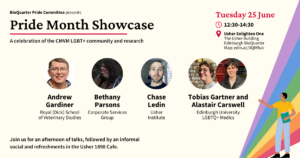
- Link: Staff Pride Network BioQuarter Coffee & Cake Social
- Staff Pride Network Central Coffee & Cake
- Date: 26th June 2024
- Time: 13:00 BST
- Details: Coffee and cake social event organized by the Staff Pride Network.
- Link: Staff Pride Network Central Coffee & Cake
- Staff Pride Network Trans and Non-Binary Meetup
- Date: 27th June 2024
- Time: 17:30 BST
- Details: Meetup for trans and non-binary members organized by the Staff Pride Network.
- Link: Staff Pride Network Trans and Non-Binary Meetup
July
- Staff Pride Network Evening Social
- Date: 5th July 2024
- Time: 17:30 BST
- Details: An evening social event organized by the Staff Pride Network.
- Link: Staff Pride Network Evening Social
Is there any other information or events you’d like to include? Please get in touch StaffPrideNetwork@ed.ac.uk
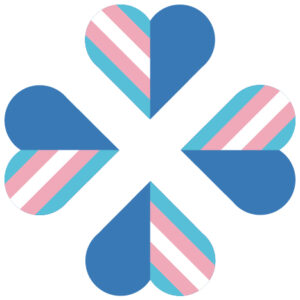
 JONATHAN MACBRIDE
JONATHAN MACBRIDE